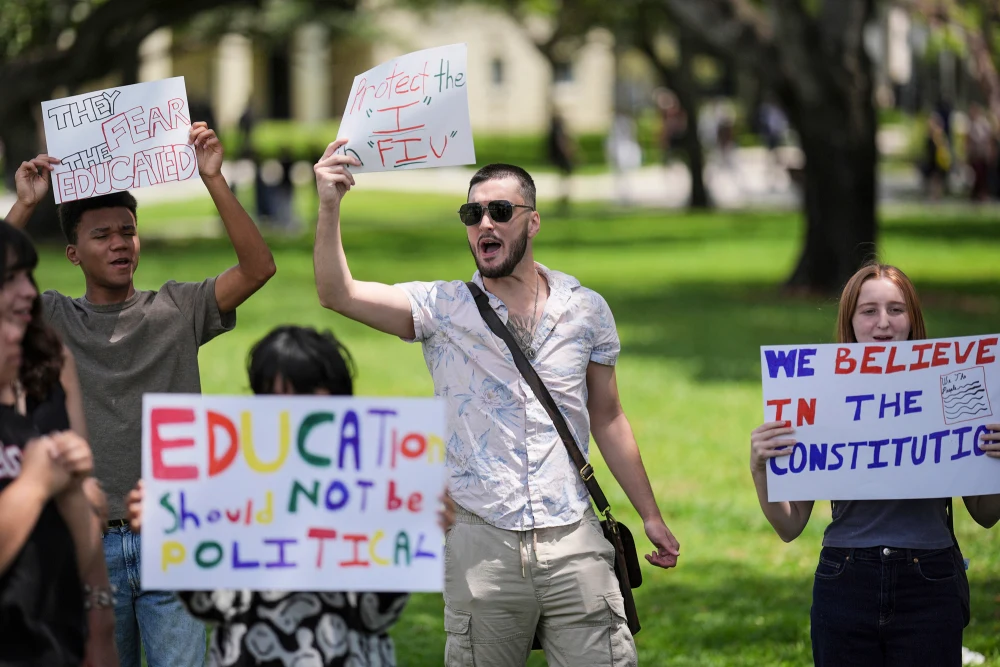OAKLAND, Calif. — A federal judge in California has issued a sweeping injunction against the Trump administration, blocking it from revoking the legal status of international students at universities across the United States.

The ruling, delivered by U.S. District Judge Jeffrey S. White in Oakland, halts immigration enforcement actions against foreign-born students while a broader legal challenge unfolds. The decision prevents the administration from arresting, detaining or transferring students based solely on their immigration status until the case is resolved.
In his written order, Judge White sharply criticized the administration’s erratic handling of international student visas, accusing it of destabilizing the lives of foreign students and violating legal safeguards.
“The government has wreaked havoc on the lives of these plaintiffs and similarly situated students,” White wrote. “It is unclear how this game of whack-a-mole will end unless defendants are enjoined from skirting their own mandatory regulations.”
The Department of Homeland Security and the Department of Justice did not immediately respond to requests for comment from NBC News.
This ruling marks the first nationwide relief granted to international students facing sudden visa terminations under the Trump administration’s immigration enforcement strategy. While some students have previously secured individual reinstatements, White’s order provides broader protections as legal proceedings continue.
The injunction bars the Department of Homeland Security from reversing reinstated student visa records or relocating plaintiffs to jurisdictions outside of their residences. It also blocks any attempts to detain students while their immigration cases are still pending in court.
The Trump administration had argued that an injunction was unnecessary because it had already begun restoring student visa statuses as U.S. Immigration and Customs Enforcement (ICE) develops a new framework for revocations. But White rejected that argument, noting the administration’s pattern of changing its position only after court intervention.
“At each turn in this and similar litigation across the nation, Defendants have abruptly changed course to satisfy courts’ expressed concerns,” he wrote.
The legal challenge stems from the administration’s March initiative to revoke the records and legal statuses of thousands of international students. Many of those targeted had been involved in political protests or had criminal charges on their records, such as DUIs.
During an April court hearing, DHS officials acknowledged that between 10 to 20 employees were tasked with screening the names of approximately 1.3 million foreign-born students using the FBI’s National Crime Information Center (NCIC) database.
However, immigration experts and attorneys have raised concerns about the reliability of the NCIC, which depends on voluntary data submissions from state and local jurisdictions. The database often lacks final dispositions of criminal cases, leading to erroneous visa terminations for students who were either not convicted or had their charges dismissed.
Critics argue that the Trump administration’s aggressive approach toward international students undermines legal due process and academic freedom, especially for students who have been in the country lawfully and are enrolled in accredited programs.
The case continues to draw attention from civil rights groups and academic institutions, many of which view the administration’s actions as part of a broader campaign to limit immigration and suppress political dissent on campuses.



